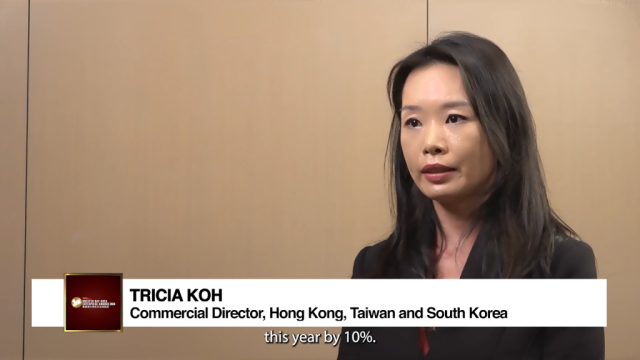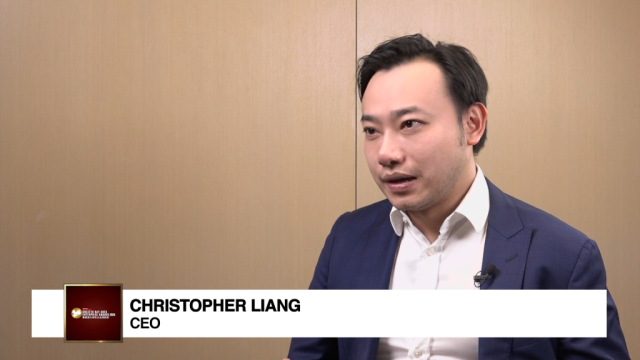
How much of the Mainland economic slowdown will hurt Hong Kong's growth?
Trade and financial activites are vulnerable.
In the month after the PBOC changed the way it sets the daily mid-rate for the RMB, the currency moved in a tight range of between 6.37 and 6.40 per USD, representing a fall of only 2.7 to 3.1%. Considering that a sharp depreciation is unlikely in the near term, such currency movements should not have a significant impact on the Hong Kong economy.
According to a research note from Hang Seng Bank, however, on the other hand, it has observed an increase in the downside risk to Hong Kong’s economic growth arising from further economic slowdown on the Mainland and the recent stock market correction.
Fixed-asset investment growth on the Mainland fell to a multi-year low of 10.9% in August. As Hong Kong’s economic cycles become more closely aligned with those of the Mainland economy, its view is that the risk of Hong Kong’s growth being adversely affected by the Mainland economic slowdown is increasing.
The bank's calculations suggest that the Hong Kong economy has had a rising positive correlation with the Mainland economy in recent years, and that this correlation has even been higher than that between the economies of Hong Kong and the US – although that is possibly because of cyclical factors or, in economic terms, irregular variations.
But there are other indications that the economic relationship between Hong Kong and the Mainland is getting closer. The Mainland’s share of Hong Kong’s total trade has increased to over 50% from 38% in 1998. Mainland tourists now account for 78% of total visitor arrivals, up from around 25% over the same time period. In addition, turnover on the Hang Seng China Enterprises Index is now equivalent to about 74% of that on the Hang Seng Index (HSI), up from 61% just three years ago.
Here's more from Hang Seng Bank:
Against this backdrop, a key question is how much the Mainland economic slowdown could affect Hong Kong’s growth. Our analysis of this issue last year determined that a slowing of the Mainland’s economy could affect trade, prices and financial activity in Hong Kong. Our findings, which we believe are still valid for reference purposes, suggested that a drop of 0.2 to 0.7 percentage points in Mainland GDP growth would reduce Hong Kong’s growth by 0.3 to 0.5 percentage points and that the impact would be more on investment than on consumption or trade.
Another source of risk would be the recent stock market adjustment, which has seen the HSI fall by around 4,500 points, or over 17%, since the start of July. The HSI is widely seen as a forward-looking barometer for the Hong Kong economy and its fall may lead to a reduction in household wealth and, hence, consumption.
Estimating this negative wealth effect from declining share prices is never easy, but we can view the issue from two different angles. First, the Mainland’s stock market boom and the resulting 17.4% growth in financial services activity during the first six months of 2015 were cited by many as the main reason for the economy achieving 7% growth in the first half of the year. In Hong Kong, financing and insurance activity accounts for about 16.4% of GDP. By our calculation, it grew 6% on average and contributed 1.1 percentage points to the 2.6% GDP growth recorded for the first half of the year.
It was about four years ago when the HSI last experienced a decline of over 17%. The index dropped by about 4,800 points, or 22%, in the two months to September 2011. In the following quarter, the fourth quarter of 2011, financing and insurance activity contracted by 0.8% and reduced GDP growth by 0.2 percentage points. If history is any guide, financing and insurance activity might therefore make no or a slightly negative contribution to GDP in the third or fourth quarter of this year.
Second, with the recent stock slide, Hong Kong’s total stock market capitalisation has fallen by about HKD4.7 trillion since the start of July to around HKD24 trillion. According to the latest Cash Market Transaction and Retail Investor surveys conducted by the Hong Kong Exchanges and Clearing Limited, local retail investors – who total about 2.265 million persons, or about 36.4% of the Hong Kong adult population – accounted for about 20% of the total stock market turnover in 2013/14.
This suggests that every local retail stock investor has lost about HKD415,000 on average, which is a significant figure when compared to the current median monthly household income of HKD24,500 or the 2014 GDP per capita of HKD311,000. In order to bear recent financial losses from shares, investors are likely to cut their spending over the coming months. Perhaps more importantly, if more than one in three people are spending less, the rest of the population may also shift towards greater thrift. And this likely reduction in spending would, in turn, weigh heavy on overall economic growth.






















 Advertise
Advertise








